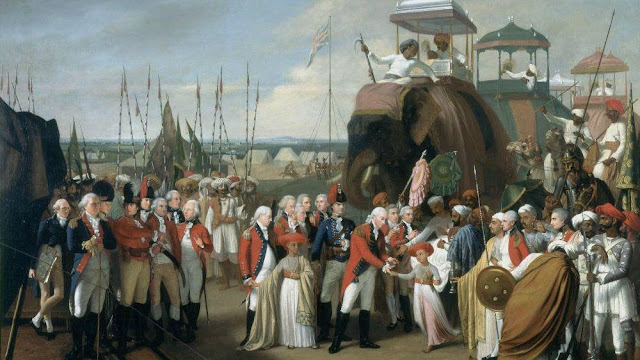Conventional wisdom says
Britain’s transformation in the 18th century from an agrarian economy to an
industrial one was largely midwifed by technological innovation and
mechanisation, as symbolised by the steam engine and the cotton factories,
respectively.
However, in a new book titled Empire
of Guns, Priya Satia, a professor of British history at Stanford
University, argues that this isn’t the whole story. In fact, it was war that fueled the industrial
revolution, and specifically war in the colonies, including India.
While doing research on the history of the global arms trade,
Satia stumbled upon the story of one Samuel Galton Jr, born in 1753, who
presided over a Quaker family business in Birmingham that would go on to become
the largest gun manufacturing firm in Britain and a key supplier to the East
India Company (EIC). When asked in 1795 to defend his line of business to the
critical Quaker church, Galton Jr maintained that guns were an instrument of
civilisation, not just war, and that Britain was actually a military-industrial
society.
For Satia, this was eye-opening since it suggested that
rather than an emerging industrial economy, Britain was actually shaping up to
be a military economy in the 18th century. In this context, the widely accepted
idea of “unfettered geniuses,” rather than the warring British state, sparking
economic transformation, seemed particularly misleading.
“For some reason when we talk about the invention of
industrialism in the 18th century, it’s always a very pacific affair. It was
about entrepreneurial genius, a culture of tinkering, some special cultural
qualities in Britain, rather than the fact that Britain is always at war,”
Satia told Quartz. This idea, she argues in the book, has in turn shaped the
way the world has thought about stimulating development for over 200 years,
even though it’s wrong.
Recognising the connection between war manufacturing and
economic development, the British sought to suppress arms-making traditions in
their colonies, especially India, to ensure that they stayed relatively
underdeveloped. For instance, the EIC’s forces went on to capture and take over
the arms-making facilities of Indian rulers like Tipu Sultan, at the same time
selling British guns to the native princes.
